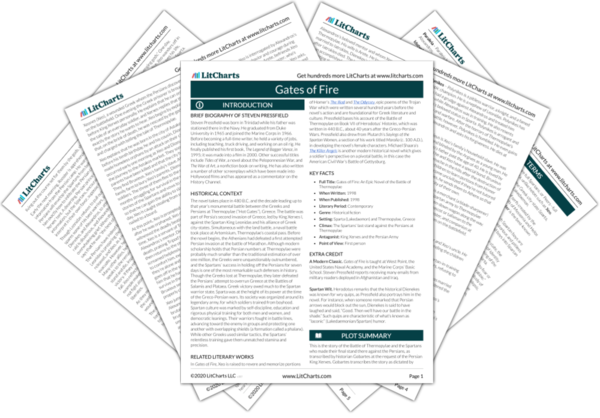AI ToolsNew
Tools to make learning and teaching easier
|
Previous
Chapter 22
|
Gates of Fire: Chapter 23 Summary & Analysis |
Next
Chapter 24
|


Upgrade to unlock the analysis and theme tracking for all of Gates of FireGates of Fire!
Get LitCharts A+